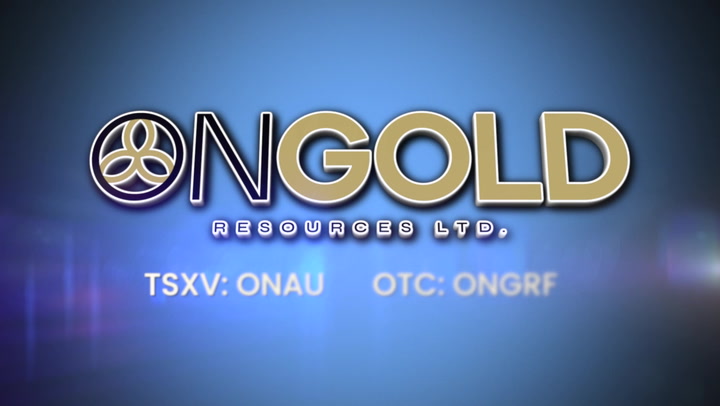Navigating the Healthcare Sector with Middlefield
Middlefield’s funds offer multiple entry points into the market, through sectors like real estate, innovation, energy, and infrastructure.

The outlook for the markets in 2023 remains uncertain. Many watchers are still predicting a continuation of the overall downturn that began in 2022, when high inflation, rising interest rates, and the unravelling of risky assets lead to rising uncertainty and anxiety for investors. While the continuing volatility in the markets might cause some armchair investors to recoil and rethink their investment strategies, the award-winning equity income specialists, Middlefield, have a different approach. They see a potential crisis in the markets as an opportunity to invest strategically.
Established in 1979, Middlefield originally focused on real estate development and financing, but have blossomed into a diverse asset management company. Middlefield’s funds offer multiple entry points into the market, through sectors like real estate, innovation, energy, and infrastructure.
One essential plank of Middlefield’s overall investment strategy, and one that has been historically resistant to the vicissitudes of the market, is the healthcare sector. Robert Moffat is Middlefield’s healthcare portfolio manager. He believes that there are two important reasons why the healthcare sector is thought to be more-or-less recession-proof, “The first is that healthcare products tend to be needs-based. Whether it be medication or procedures at the hospital, or just going to visit your doctor, healthcare products and services are things that you don't really have much choice in consuming. And that gives the sector some inelastic demand qualities.”
Just as crucial for Moffat, is who usually foots the bill for healthcare costs, “Healthcare consumption typically is not paid for by the end patient.”, he continues, “It's paid for by the government or an insurance company, so it's not coming out of people's discretionary budgets. That kind of allows them to consume healthcare freely without it affecting their bottom line.”
For historic proof that the healthcare sector can be particularly resilient in the face of market downturns, one simply needs to turn to the previous three major recessions – 1999, 2001 and 2008. In each of these instances, healthcare was one of only two sectors (consumer staples being the other) to have grown its earnings from peak to trough, while the other nine sectors of the S&P 500 saw earnings decline.
Despite the relative stability of the healthcare market, even in times of economic uncertainty, Moffat argues that the average Canadian investor is underexposed to the sector as a whole. “While healthcare is actually the second biggest sector in the S&P 500, with about a 15% weighting, it represents less than 1% of the TSX Composite index. So if you just have passive exposure to the Canadian market, you've got less than 1% exposure to the sector.. I think having a universal healthcare system often makes Canadians take for granted the true cost and scale of the healthcare industry which contributes to the underexposure in our investment portfolios.”
Middlefield specializes in equity income dividend funds, usually done by investing in dividend-paying stocks,which tend to be larger cap, more stable and mature businesses. According to Moffat, “Healthcare is a great sector for this strategy. There are certain pockets within healthcare that have a lot of companies that pay attractive distributions, and that have continued to grow their dividends over time.”
Middlefield’s healthcare portfolios (ETFs and mutual funds) are actively managed, and diversified across a variety of these sector pockets, from Pharmaceuticals to Biotechnology to MedTech and Managed Care. The variety of options allows Moffat to adjust the company’s asset allocation depending on what’s happening in the market.
Heading into 2023, Moffat remains enthusiastic about Pharmaceuticals, long considered the bellwether of the healthcare sector. "Pharma companies tend to have clean balance sheets with lots of free cash flow. That gives them a lot of optionality with how to allocate their earnings towards dividends and share buybacks or growth investments such as R&D and business development. Representing around 40% of the MSCI (Morgan Stanley Capital International) World Healthcare Index, Pharma’s earnings are relatively consistent, as people use medication on a regular basis, which supports stable earnings.”
Moffat suggests that Middlefield is comfortable employing a mostly defensive posture when it comes to the company’s healthcare strategy to start the year, “While there are positive things in the market to point to like inflation coming down, and labor markets remaining healthy, our overarching macro view is that there are growing risks of a mild recession, so it makes sense to be defensive coming into the year. That said, you need to be willing to opportunistically add some risk if markets pull back.”
Moffat argues that 2023 could be the year for some higher growth MedTech companies – ones that saw flagging fortunes during the Covid pandemic – to make a comeback. ”Many of the headwinds that impacted these companies last year, including supply chains, foreign exchange and labour constraints, are quickly shifting to tailwinds. I think that the medium-term setup for MedTech is very attractive. It’s too early to say for sure but as macro conditions improve, that's definitely an area we will be adding to as I would expect it to outperform.”
Moffat also expects there to be some significant mergers and acquisitions in the coming year, which would portend well for the healthcare sector as a whole. Coming out of the pandemic, vaccine companies, along with companies that make therapeutics and diagnostics for Covid testing saw massive revenues. So massive, that Goldman Sachs has estimated that the healthcare sector is currently sitting on close to a $1 trillion capacity for M&A activity. “The big incumbents are very well capitalized” says Moffat, “and in this case, I think that it's a really good opportunity for some of these bigger companies with huge cash balances to actually improve their long-term earnings growth outlook by investing in innovative companies that are trading at attractive valuations.. Rather than going and spending billions of dollars on R&D, they can bolster their pipelines by acquiring companies that have already done a lot of the legwork in the clinic but could benefit from expertise in navigating the regulatory and commercial environments.”
With such a vast and varied sector with as many moving parts as healthcare, and with an uncertain road ahead, Robert Moffat lays out the case for investors to turn to a trusted equity income manager like Middlefield, “At Middlefield we are active managers. Our funds typically hold anywhere from 30 to 45 names. We have a third-party exclusive industry advisor who we utilize for proprietary research and information to help with our investment process. And most importantly, our funds pay you distributions which enhances their total return by not only providing upside from stock price appreciation, but also from receiving a consistent and steady dividend yield.”
With 40 years of experience generating cash flows and dividends for their clients, and access to the top healthcare companies across the vast spectrum of the sector, Middlefield is well positioned to continue to help investors navigate the vagaries and fluctuations of the stock market in uncertain times.
For more information on Middlefield Group please visit their website at www.middlefield.com.
FULL DISCLOSURE: Middlefield Group is a client of BTV-Business Television. This article does not constitute investment advice. Each reader is encouraged to consult with his or her individual financial professional. Any action taken as a result of reading information here is the reader’s sole responsibility.

Latest Posts
Hot Companies
You might also like






